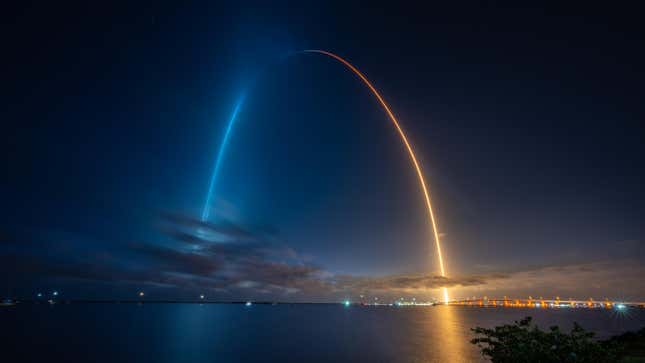
It makes perfect sense for a private space company to down its rockets over the ocean. However, it can still sometimes get in the way of human activity on and over the water. Falling debris from SpaceX rockets delayed Qantas flights over the Indian Ocean this month. Australia’s flag carrier was given little warning that its flight paths would be showered in space junk.
Qantas flights on its route between Johannesburg, South Africa and Sydney are suffering delays lasting as long as six hours, Bloomberg reports. Flying out of Australia, the airline is diligent enough to be aware of space operations around its transoceanic routes. Qantas regularly communicates with SpaceX, but late-minute changes will impact customers’ flights. The Guardian spoke with Ben Holland, the head of Qantas’s operations center:
“Over the past few weeks, we’ve had to delay several flights between Johannesburg and Sydney due to advice received from the US Government regarding the re-entry of SpaceX rockets over an extensive area of the Southern Indian Ocean.”
“While we try to make any changes to our schedule in advance, the timing of recent launches have moved around at late notice which has meant we’ve had to delay some flights just prior to departure. Our teams notify customers of changes to their flight as soon as we know it will be impacted.”
The number of SpaceX launches has dramatically increased over the past few years. The company launched 33 rockets in 2021, which jumped to 134 in 2024. The disposable sections must come down somewhere, and secluded oceans are the perfect place. However, the FAA bans flights in areas where rocket activity is happening. The agency also estimates that SpaceX’s exponentially expanding Starlink satellite constellation could kill one person every two years.


